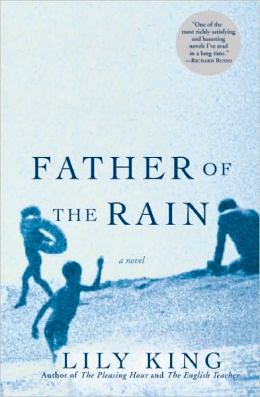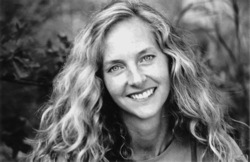Note: This novel was WINNER of the New England Book Award for Fiction in 2010. Her 2014 novel, Euphoria was WINNER of the Kirkus Prize for Best Novel of 2014. The author has also been a WINNER of a Whiting Award for fiction for her novel The Pleasing Hour and has been a MacDowell Colony Fellow.
“In my father’s culture there is no room for self-righteousness or even earnestness. To take something seriously is to be a fool. It has to be all irony, disdain, and mockery. Passion is allowed only for athletics…Achievement in any realm other than sports is a tell-tale sign of having taken something seriously.”
 John Updike made the life of Boston’s suburban elite his territory—emphasizing their sense of entitlement and superiority, their “clubbiness,” their alcoholism, and their sexual experimentation as a way of asserting their existence and their privilege. One generation later, Lily King, like her fellow Massachusetts authors Susan and George Minot, shares her own insights into what sometimes passed for family life in a similar, privileged setting. Their fathers, as depicted by the younger authors, might have belonged to similar clubs, attended similar social events, and even drunk the same brand of gin. Their mothers were the rocks of the family, with values more closely allied with the real world, until their deaths or divorces left the children without a strong parental figure as they faced the storms of adolescence.
John Updike made the life of Boston’s suburban elite his territory—emphasizing their sense of entitlement and superiority, their “clubbiness,” their alcoholism, and their sexual experimentation as a way of asserting their existence and their privilege. One generation later, Lily King, like her fellow Massachusetts authors Susan and George Minot, shares her own insights into what sometimes passed for family life in a similar, privileged setting. Their fathers, as depicted by the younger authors, might have belonged to similar clubs, attended similar social events, and even drunk the same brand of gin. Their mothers were the rocks of the family, with values more closely allied with the real world, until their deaths or divorces left the children without a strong parental figure as they faced the storms of adolescence.
Dividing her novel into three parts, Lily King tells the story of Daley Amory, daughter of Gardiner and Meredith Amory, from her eleventh birthday, during the Presidency of Richard Nixon, through her forties and the election of Barack Obama. Though she lives for long periods of time during those years without contact with her alcoholic father, she never really escapes her need for him, even, on occasion, subsuming her own “best interests” to care for him. In the hands of a lesser author, the novel might have devolved into outrageous melodrama during its long chronology, but King is too good an author to allow that to happen. With a fine eye for imagery, an unerring ear for dialogue, and a firm grasp of the depths of emotion that underlie the interplay between Daley and Gardiner, she creates a novel that establishes her themes about daughters and their fathers, a surprisingly rare subject for fiction.
The novel opens on Daley’s eleventh birthday. Her mother has sworn her to secrecy that week, telling her that she intends to leave her father and wants Daley to come with her to her parents’ house in New Hampshire for the summer. When her father takes her to get a new “birthday puppy,” Daley, knowing about the impending separation whereas her father does not, chooses the ugliest puppy in the shop. An ugly puppy, she believes, will be easier to leave behind. Her mother, an activist, is entertaining inner city children in their pool that week. Her father, at home because he has lost his job, for mysterious reasons, mocks their accents, their skin color, and their poverty, then persuades Daley to join him in streaking nude through the gathering. Three months later, after a summer in New Hampshire, Daley returns to her former home to visit her father–and finds him living with someone else, the woman’s daughter sleeping in Daley’s bedroom, and her mother’s garden and the grounds a mess.

A small Massachusetts harbor town with some resemblances to the one in which Daley Amory spends her early childhood.
Part II takes place during a going-away party for Daley in Michigan sixteen years later. Having completed her degree work, she is about to begin work in California. Then she gets a call saying that her father is suicidal and needs her. The call reawakens her feelings for him at some cost to her own future. In Part III, Daley is the mother of two children. She has had no contact with her father for fifteen years. And then she gets another phone call asking her to return to see him.
Gardiner Amory is an almost impossible person to like, primarily because he is so ignorant and self-satisfied. He has no interests beyond the elite little world of his town and his club, surrounding himself with people who behave as he does. Snide and snobbish, he is a manipulator, willing to do anything to get his own way. Insensitive in the extreme, especially to the needs of his children, he does whatever he wants, encouraging Daley to see the world through his own blinders. His profanity, his alcoholic tantrums, his insulting behavior toward his succession of wives, and his flagrant sexual performances are more than many readers will want to know about. It is this last issue which, unfortunately, casts a clinker into the mix of scenes—several sexual episodes so explicit that they will, for some readers, negatively affect the thoughtfully observed mood and style of the novel overall.
Daley is sympathetic and largely believable, a character whose childhood activities—experimenting with smoking, drinking, and necking—are not unusual. Her love of reading makes her eventual academic achievements plausible, though there is no hint that she will achieve at the level that she does. Though her decision to nurse her weak father emphasizes her overwhelming need for him, the length of her stay is more difficult to understand. Having reached the pinnacle of academic achievement, Daley allows herself to be cooped up with a man who rejects (and even mocks) academic interests, a situation which would have bored or infuriated most other brilliant scholars. The fact that her devotion is taken for granted, rather than appreciated, makes her long stay especially sad (and unrealistic). A fascinating look at the extent to which girls and women yearn for a father and the lengths to which they will go to make that father love them, Father of the Rain is a thoughtful novel which shows the evolution of a woman who must help her father deal with his limited view of life, even as her own world view is expanding and eventually flourishing.
ALSO by Lily King: EUPHORIA
Photos, in order: The author’s photo comes from http://artsbeat.blogs.nytimes.com/
The photo of the rotunda and harbor is from a small Massachusetts town similar to the one Ms. King describes in her novel. http://www.yelp.com
The carnival plays a role at the beginning and ending of this novel. http://thenakedscribe.com


